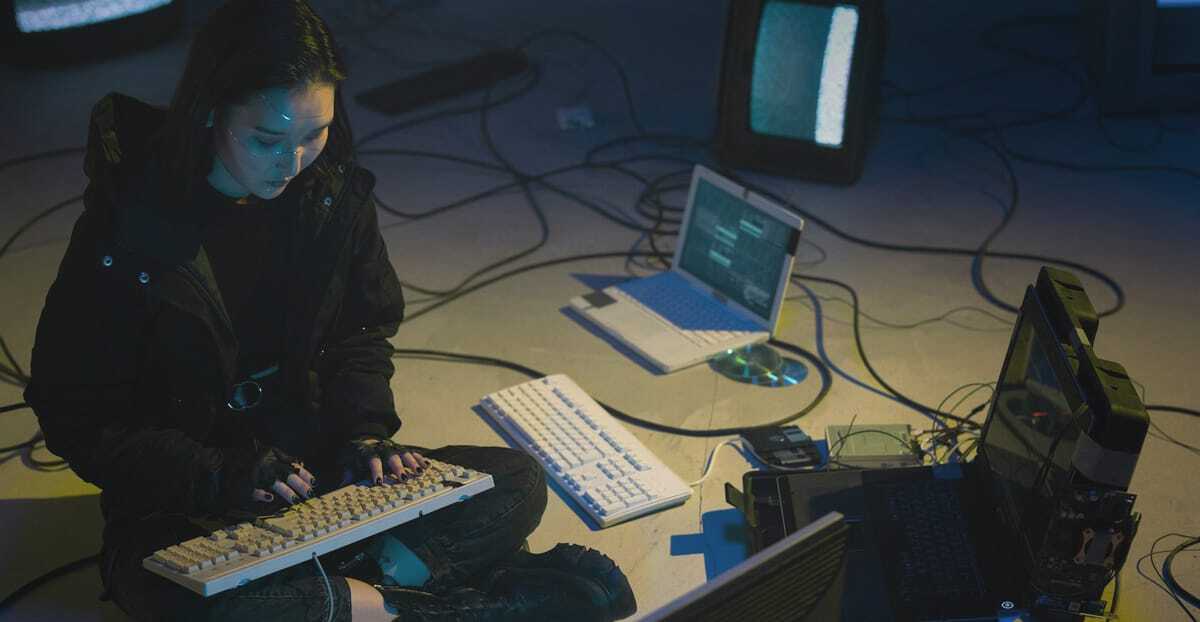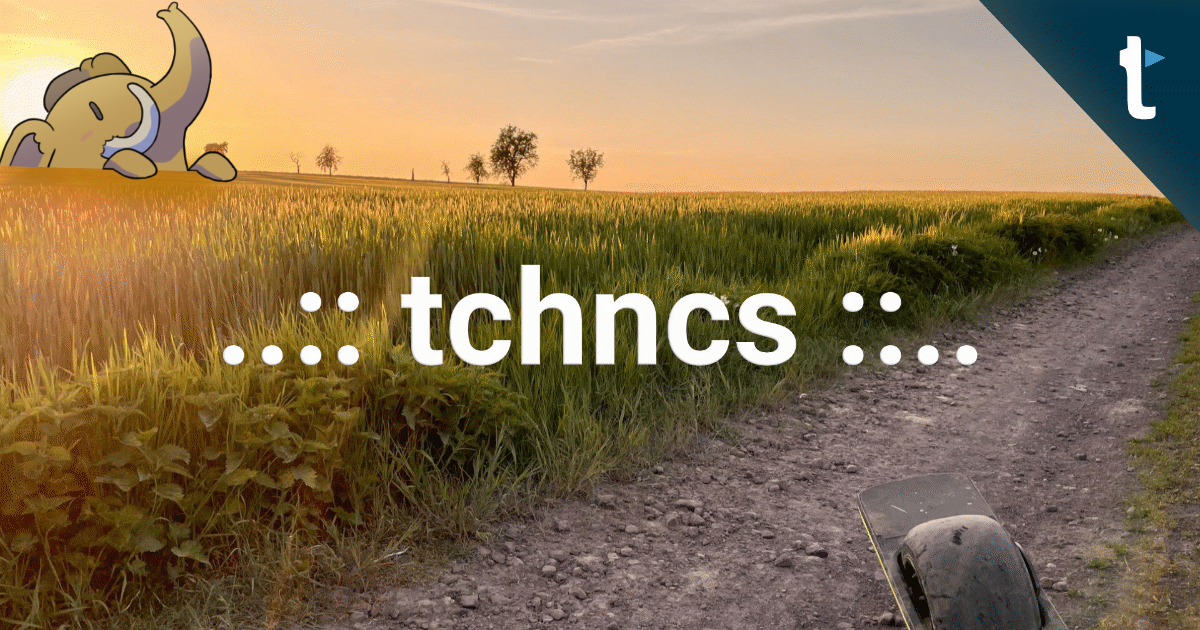https://www.europesays.com/uk/40961/ Russian attacks on Europe included bid to sway EU election, Dutch spies warn – POLITICO #Companies #CriticalInfrastructure #Defense #digital #Elections #Hackers #Industry #infrastructure #Intelligence #Military #PublicTransport #Russia #Security #TheNetherlands #Ukraine #War #WarInUkraine
Recent searches
Search options
#criticalinfrastructure
Russian attacks on Europe included bid to sway EU election, Dutch spies warn – POLITICO https://www.byteseu.com/944989/ #Companies #CriticalInfrastructure #Defense #digital #Elections #hackers #industry #INFRASTRUCTURE #Intelligence #Military #PublicTransport #Russia #Security #TheNetherlands #Ukraine #War #WarInUkraine
https://www.europesays.com/2016877/ Russian attacks on Europe included bid to sway EU election, Dutch spies warn – POLITICO #Companies #CriticalInfrastructure #défense #Digital #elections #europe #hackers #industry #infrastructure #intelligence #military #PublicTransport #Russia #security #TheNetherlands #Ukraine #war #WarInUkraine

With Chinese diplomats reportedly admitting to targeting US Critical Infrastructure as a "warning to the U.S. about Taiwan" and some in the industry war-gaming the possibility of Cyber Effects being used to sway the Trade dispute between the US and China, now seemed a good time to do a reality check on how - if at all - China would do so.
The bottom line - expect a surge in cyber espionage and signaling campaigns targeting US telcos and leadership to provide the CCP a competitive advantage in negotiations and their backdoor dealings.
Cyber Security doesn't operate in a vacuum - here's a good example of where geopolitics starts to seep in at the edges: https://opalsec.io/is-cyber-a-legitimate-weapon-in-a-tariff-war/

https://www.europesays.com/2004370/ Australia’s cyber sector grows amid increasing attack risks #australia #Australia(Australian) #CriticalInfrastructure #CyberAttacks #DataProtection #DigitalTransformation #GenderDiversity #investment #NationalSecurity #ransomware #Transparency
https://www.europesays.com/1997221/ NATO allies boost cyber defense coordination, focus on improving critical infrastructure resilience #CriticalInfrastructure #CriticalInfrastructureResilience #CyberDefense #CyberThreat #Cybersecurity #Europa #europe #InfrastructureResilience #MaliciousCyber #malware #nato #OTAN #ThreatIntelligence
https://www.europesays.com/uk/11221/ Estonia seizes Russian shadow tanker in Baltic Sea – POLITICO #BalticSea #Baltics #Borders #CriticalInfrastructure #Djibouti #Estonia #Finland #infrastructure #KristenMichal #Maritime #Military #Oil #Parliament #Ports #Russia #Sanctions #WarInUkraine
https://www.europesays.com/1986693/ Estonia seizes Russian shadow tanker in Baltic Sea – POLITICO #BalticSea #baltics #borders #CriticalInfrastructure #Djibouti #estonia #finland #infrastructure #KristenMichal #maritime #military #oil #parliament #ports #Russia #sanctions #WarInUkraine
Estonia seizes Russian shadow tanker in Baltic Sea – POLITICO https://www.byteseu.com/911972/ #BalticSea #Baltics #Borders #CriticalInfrastructure #Djibouti #Estonia #Finland #INFRASTRUCTURE #KristenMichal #maritime #Military #oil #Parliament #Ports #Russia #Sanctions #WarInUkraine
State by State Pending and recently passed #AntiProtestLaws: #Texas
HB 3557: New criminal and civil penalties for protests around #CriticalInfrastructure
Creates new criminal sanctions and expansive civil liability for protests near pipelines and other infrastructure facilities, including those under construction. The law provides for four new criminal offenses. One, "impairing or interrupting operation of critical infrastructure facility," is defined as entering or remaining on facility property and intentionally or knowingly "impair[ing] or interrupt[ing] the operation of" the facility. The act is a state jail felony, punishable by up to two years in jail and a $10,000 fine. This provision could target peaceful protests that, e.g., hinder access to #pipelines or #pipeline construction sites. A second offense, "intent to impair or interrupt critical infrastructure," is defined as entering or remaining on facility property "with the intent to impair or interrupt the operation of the facility." The act is a Class A misdemeanor, punishable by a year in jail and a $4,000 fine. This provision could capture peaceful protests that take place near a pipeline or other infrastructure facility, regardless of whether they actually impair or interrupt the facility's operations. The law also creates two new felony offenses for "damage" and "intent to damage" critical infrastructure. Under the law, an association that is found guilty of any of the offenses around critical infrastructure is subject to a $500,000 fine. The law also creates new civil and vicarious liability for individuals and organizations related to the criminal offenses: A defendant who engages in conduct covered by any of the criminal offenses is civilly liable to the property owner, as is an organization that "knowingly compensates" a person for engaging in the conduct. The property owner may sue for and claim actual damages, court costs, and exemplary damages.
Full text of bill:
https://capitol.texas.gov/BillLookup/History.aspx?LegSess=86R&Bill=HB3557
Status: enacted
Introduced 6 Mar 2019; Approved by House 7 May 2019; Approved by Senate 20 May 2019; Signed by Governor Abbott 14 June 2019
Issue(s): Civil Liability, #ProtestSupporters or Funders, Infrastructure
SB 2876: Heightened penalties for protesters who conceal their identity
Would increase criminal penalties that could cover peaceful protesters who choose to wear a mask. Under the bill, a protesters charged with “riot” would face more serious penalties if they were wearing a mask or other face covering with intent to conceal their identity, as compared to someone without a mask. The offense would be a Class A misdemeanor, punishable by up to one year in jail and $4,000, instead of a Class B misdemeanor. The crime of “riot” under Texas law is defined broadly and does not require violence or other unlawful conduct: The offense covers a group of seven demonstrators whose conduct “substantially obstructs law enforcement or other governmental function or services,” or whose “physical action deprives any person of a legal right or disturbs any person in the enjoyment of a legal right.” Under the bill, a protester who chose to wear a mask to avoid #retaliation for their political views could face significant jail time if their #NonviolentProtest was deemed a “#riot.”
Full text of bill:
https://capitol.texas.gov/BillLookup/History.aspx?LegSess=89R&Bill=SB2876
Status: pending
Introduced 14 Mar 2025.
Issue(s): Face Covering, Riot
HB 3061: Heightened penalties for masked protesters
Would increase the penalty for protest-related offenses if committed by someone wearing a mask or other disguise to conceal their identity while “congregating with other individuals who were disguised or masked.” Under the bill, the penalty for trespass, “disorderly conduct,” and “riot” would be one degree more severe if committed by a group in which some individuals wore masks. The bill provides an exemption to the penalty enhancement for masks worn during Halloween, a masquerade ball, or “similar celebration,” but not for avoiding retaliation for political speech. “Disorderly conduct” and “riot” are broadly defined under Texas law. Protesters who make “unreasonable noise” in public, for instance, may be charged with “disorderly conduct”; under the bill, such protesters could face significant jail time rather than a fine if they were masked. “Trespass” in Texas also carries significant penalties if committed on #CollegeCampuses, "critical infrastructure," or other select locations, such that peaceful protesters who trespassed on a college campus could face felony rather than misdemeanor penalties if they were masked to avoid retaliation.
Full text of bill:
https://capitol.texas.gov/BillLookup/History.aspx?LegSess=89R&Bill=HB3061
Status: pending
Introduced 19 Feb 2025.
Issue(s): Campus Protests, Face Covering, Infrastructure, Riot, Trespass
#FirstAmendment #CriminalizingDissent
#Authoritarianism #Fascism #Clampdown #CriminalizingProtest
#CharacteristicsOfFascism #USPol #AntiProtestLaws #PipelineProtests #SLAPPs #MaskedProtesters #AntiMaskLaws
State by State Pending and recently passed #AntiProtestLaws: #Oregon
HB 2534: Felony penalties for protesters who impede traffic
Would expand the definition of “riot” such that the felony offense could cover demonstrators who peacefully protest in the street. Oregon law defines “riot” as engaging in “tumultuous and violent conduct” with a group of five or more other people in a way that “intentionally or recklessly creates a grave risk of causing public alarm.” The offense is a Class C felony, punishable by up to five years in prison and $125,000. The bill would define “tumultuous and violent conduct” to include “imped[ing] traffic,” creating a “traffic hazard,” or “block[ing] the normal and reasonable movement of traffic.” As such, a large sidewalk protest that even momentarily overflowed onto a street in a way that could be considered a “traffic hazard” could be deemed a “riot,” and demonstrators could face felony penalties regardless of whether their conduct was “tumultuous” or “violent.”
Full text of bill:
https://olis.oregonlegislature.gov/liz/2025R1/Measures/Overview/HB2534
Status: pending
Introduced 13 Jan 2025.
Issue(s): #Riot, #TrafficInterference
HB 2772: Criminalizing Certain Protests as #DomesticTerrorism
**Note: This bill was amended prior to its passage and provisions that would have covered peaceful protest activity were significantly narrowed.** As introduced, the bill would have created a sweeping new crime of "domestic terrorism" that would include if a person intentionally attempted to cause "disruption of daily life" that "severely affects the population, infrastructure, environment, or government functioning of this state." Under this definition, a peaceful protest that blocked traffic in a major commercial district could be defined as domestic terrorism, a Class B felony punishable by up to 10 years in prison and a fine of up to $250,000. Lawmakers substantially amended the bill prior to its enactment, however rights groups argue that it could still cover certain acts of civil disobedience. Under the enacted law, “domestic terrorism” in the first degree is a Class B felony and includes intentionally destroying or substantially damaging “critical infrastructure,” with the intent to disrupt the services provided by critical infrastructure. Attempting to destroy or substantially damage critical infrastructure is a Class C felony, punishable by up to 5 years in prison and a fine of $125,000. “#CriticalInfrastructure” is broadly defined to include #pipelines and #roads.
Full text of bill:
https://olis.oregonlegislature.gov/liz/2023R1/Measures/Overview/HB2772
Status: enacted with improvements
Introduced 9 Jan 2023; Approved by House 8 June 2023; Approved by Senate 23 June 2023; Signed by Governor Kotek 4 August 2023
Issue(s): Infrastructure, Terrorism, Traffic Interference
#FirstAmendment #CriminalizingDissent
#Authoritarianism #Fascism #Clampdown #CriminalizingProtest
#CharacteristicsOfFascism #USPol #AntiProtestLaws #PipelineProtests
State by State Pending and recently passed #AntiProtestLaws: #Oklahoma
HB 1674: Penalties for #protesters who block #traffic, immunity for drivers who hit protesters, and liability for organizations that work with protesters
**Note: Portions of HB1674 were preliminarily enjoined by a federal district judge on October 27, 2021, temporarily blocking enforcement of the law's 1) penalties for protesters who obstruct traffic, and 2) penalties for organizations that "conspire" with someone who is convicted of certain protest-related offenses.** Creates new penalties for protesters who obstruct traffic while participating in a "riot," and protects drivers who "unintentionally" hit them. Under the law, a person who participated in a "riot" and "obstructed" the "normal use" of a public street or highway, is guilty of a misdemeanor punishable by up to one year in prison, a $5,000 fine, and restitution for any property damage that occurs. The law defines "obstruct" to include rendering the street or highway "unreasonably inconvenient or hazardous" for cars' passage, including by "standing" on the street or highway. "Riot" is broadly defined under existing Oklahoma law, to include a group of three or more people who make "any threat to use force." The new law also shields from liability a driver who injures or kills someone while "fleeing from a riot," as long as they did so "unintentionally," were "exercising due care," and held a "reasonable belief" that they needed to flee to protect themselves. Under the law, such a driver cannot be held civilly or criminally liable for the injuries or death they caused. Finally, the law provides that an organization found to have "conspired" with individuals who are found guilty of certain offenses--including "unlawful assembly," "riot," "incitement to riot," refusing to aid in the arrest of a "rioter," and remaining at the scene of a "riot" after being ordered to disperse--may be fined ten times the maximum amount of fine authorized for the individual's offense.
Read full text:
https://www.oklegislature.gov/BillInfo.aspx?Bill=hb1674&Session=2100
Status: enacted
Introduced 2 Feb 2021; Approved by House 10 March 2021; Approved by Senate 14 April 2021; Signed by Governor Stitt 21 April 2021
Issue(s): #ProtestSupporters or Funders, #DriverImmunity, Riot, #TrafficInterference
HB 2095: Racketeering penalties for those involved in "unlawful assemblies"
Adds "unlawful assemblies" to the offenses that can be prosecuted as "#racketeering activity" under Oklahoma's #RICO statute. As a result, an organization or individual found to have "attempted" or "conspired" with individuals to engage in or encourage a protest that is deemed an "unlawful assembly" can be prosecuted under RICO and subject to felony penalties. Oklahoma law broadly defines "unlawful assembly" to include a group of three or more people who gather without lawful authority in a manner "as is adapted to disturb the public peace."
Full text of bill:
https://www.oklegislature.gov/BillInfo.aspx?Bill=hb2095&Session=2200
Status: enacted
Introduced 1 Feb 2021; Approved by House 8 March 2021; Approved by Senate 21 April 2021; Signed by Governor Stitt 28 April 2021
Issue(s): Protest Supporters or Funders
HB 1123: New penalties for protests near #CriticalInfrastructure
Targets protests around certain public facilities by creating a new criminal offense for trespass onto property containing "critical infrastructure." The law's extensive list of "critical infrastructure" facilities ranges from a petroleum refinery to a telephone pole. Willfully entering onto property containing critical infrastructure without permission is a misdemeanor, punishable by up to $1,000 or six month in jail, or both. Evidence of intent to damage or otherwise harm the operations of the infrastructure facility would make the offence a felony, punishable by at least $10,000 (with no maximum provided) or imprisonment for one year, or both; actual damage or vandalizing of the facility is punishable by up to 10 years in prison and a $100,000 fine. Organizations found to have "conspired" with perpetrators are liable for up to $1,000,000. The sponsor of the law told a House of Representatives committee that it was prompted by the #DakotaAccessPipeline protests in North Dakota.
Full text of bill:
https://legiscan.com/OK/text/HB1123/2017
Status: enacted
Introduced 6 Feb 2017; Signed into law 3 May 2017
Issue(s): Protest Supporters or Funders, Infrastructure, Trespass
HB 2128: Heightened penalties for protesters who #trespass onto private property
Increases the potential penalties levied on individuals who protest on private property without permission. The law allows prosecutors to hold anyone arrested for or convicted of trespass liable for any damages to personal or real property caused while# trespassing.
Status: enacted
Introduced 6 Feb 2017; Governor Fallin signed into law 15 May 2017
Issue(s): Trespass
SB 743: Ban on protests that disturb #worshippers
Would make it a serious criminal offense to protest in a way that disturbs people engaged in religious observation. Under the bill, someone who “willfully disturbs, interrupts, or disquiets” a group of “people met for religious worship” commits a misdemeanor punishable by a year in jail and $500, or a felony punishable by two years in prison and $1,000 for subsequent offenses. As written, the bill would seemingly allow anyone who was the target of a protest—for instance, lawmakers at the statehouse—to make a protest illegal simply by starting to pray. The prohibition extends to any unauthorized “protest [or] demonstration” within one mile of the individuals engaged in religious worship. “Disturb” and “disquiet” are not defined by the bill, such that even a #SilentDemonstration that was visible to people engaged in religious worship as far as one mile away could be prohibited. The bill was introduced as a substitute to SB 743 on March 25, 2025.
Full text of bill:
https://www.oklegislature.gov/BillInfo.aspx?Bill=SB743&Session=2500
Status: pending
Introduced 25 Mar 2025; Approved by Senate 27 March 2025
SB 481: Restrictions on #PublicEmployees' ability to protest
Would broadly prohibit public employees from participating in protests during work hours in most situations. Under a committee substitute to the bill introduced on February 25, it would be unlawful for state or local government employees including public school teachers to “speak on or participate in a matter of public concern deemed a matter of larger societal significance” in “an organized form of protest” during their normal working hours. The bill would allow public employees to protest during working hours only if they were using annual leave and if their actions did not create “an undue burden on the employer’s interest in an efficient, disruptive-free workplace”—a vaguely worded condition that employers could abuse to restrict employees' participation in disfavored protests. The bill would also prohibit public employees from using publicly owned computers, transportation, or other equipment for conduct related to participation in protests.
Full text of bill:
https://www.oklegislature.gov/BillInfo.aspx?Bill=sb481&Session=2500
Status: pending
Introduced 25 Feb 2025.
#FirstAmendment #CriminalizingDissent
#Authoritarianism #Fascism #Clampdown #CriminalizingProtest
#CharacteristicsOfFascism #USPol #AntiProtestLaws #PipelineProtests
State by State Pending and recently passed #AntiProtestLaws: #NorthDakota
SB 2044: Heightened penalties for #protests near #CriticalInfrastructure
Enhances potential penalties for individuals who protest near existing and planned gas and oil #pipelines by criminalizing acts that interrupt or interfere with critical infrastructure facilities. In addition to prohibiting actual tampering with critical infrastructure property and equipment, the law prohibits "interfering, inhibiting, impeding, or preventing the construction or repair" of a critical infrastructure facility. Further, the law expands the definition of "critical infrastructure facility" to include a "site or location designated or approved for the construction of a facility" such as an oil or gas pipeline. Intentional interruption of a critical infrastructure facility, including by interfering with pipeline construction, is a Class C felony under the law, subject to a penalty of five years' imprisonment, a fine of $10,000, or both. The law also creates organizational liability for such acts: An organization found to have "conspired" with an individual who committed the interference could be criminally liable for ten times the fee imposed on the individual, or up to $100,000.
Status: enacted
Introduced 3 Jan 2019; Approved by Senate 15 Feb 2019; Approved by House 25 March 2019; Signed by Governor Burgum 10 April 2019
Issue(s): Protest Supporters or Funders, Infrastructure
HB 1426: Heightened penalties for #riot offences
Increases the penalties imposed for riot offenses. Under the law, participation in a riot is a Class A rather than Class B misdemeanor, punishable by up to one year in prison and a $3,000 fine. Engaging in a riot involving more than 100 people is made a Class B felony, subject to 10 years in prison and a $20,000 fine.
Full text of bill [pdf]:
https://ndlegis.gov/assembly/65-2017/documents/17-8158-02000.pdf
Status: enacted
Introduced 16 Jan 2017; Governor Burgum signed the law on 23 Feb 2017
Issue(s): Riot
HB 1293: Expanded scope of criminal trespass
Expands the scope of criminal trespass activity under state law such that it could encompass protests, demonstrations, or other gatherings on private property, if notice against trespass is "clear from the circumstances." The offense could be punishable by up to 30 days in jail and a $1,500 fine. The law also creates an additional, noncriminal trespass offense and allows officers to issue a citation with a $250 fine for trespassing. The law was part of a package of legislation introduced in response to the #DakotaAccessPipeline protests.
Full text of bill [pdf]:
https://ndlegis.gov/assembly/65-2017/documents/17-0650-04000.pdf
Status: enacted
Introduced 12 Jan 2017; Signed by Governor Burgum 23 Feb 2017
Issue(s): Trespass
HB 1304: New penalties for protesters who conceal their identity
Prohibits the wearing of #masks, #hoods, or other device that "conceals any portion" of an individual's face while committing a criminal offense, in order to avoid recognition or identification. As drafted, the offense could encompass, e.g., individuals wearing hooded clothing while participating in a protest and also committing a minor offense such as jaywalking. Under the law, commission of the offense comprises a Class A misdemeanor, punishable by up to one year in jail and a $3,000 fine.
Full text of bill [pdf]:
https://ndlegis.gov/assembly/65-2017/documents/17-0311-04000.pdf
Status: enacted
Introduced 12 Jan 2017; Governor Burgum signed it 23 Feb 2017
Issue(s): Face Covering
HB 1226: New criminal penalties for masked protesters
Would create a new criminal offense that could cover peaceful protesters who choose to wear a mask. The bill would make it a Class A misdemeanor, punishable by up to one year in jail and $3,000, to wear a mask “with intent to conceal the identity” of the wearer while “congregating in a public place with any other individual wearing a mask, hood, or other device that covers, hides, or conceals any portion of the individual’s face.” The bill exempts public gatherings to celebrate “Halloween, a masquerade, or other similar celebration,” but does not include exemptions for masks worn during protests, or for health, religious, or other reasons. As written, the bill could cover a protester wearing a mask to avoid retaliation for their political speech, if there were any other individual in the crowd also wearing a mask—for instance, a medical mask to avoid spreading or contracting a contagious disease.
Full text of bill:
https://ndlegis.gov/assembly/69-2025/regular/bill-overview/bo1226.html?bill_year=2025&bill_number=1226
Status: pending
Introduced 13 Jan 2025; Approved by House 10 February 2025
Issue(s): Face Covering
#FirstAmendment #CriminalizingDissent
#Authoritarianism #Fascism #Clampdown #CriminalizingProtest
#CharacteristicsOfFascism #USPol #AntiProtestLaws #PipelineProtests #MaskedProtesters #AntiMaskLaws #SurveillanceState #PipelineProtests #NoDAPL
State by State Pending and Recently Passed #AntiProtestLaws: #Indiana
SB 471: New penalties for protests near critical infrastructure
Heightens the potential penalties for protests near oil and gas #pipelines and other infrastructure by creating the offenses of "criminal #infrastructure facility #trespass" and "#CriticalInfrastructure facility mischief." The law provides that an individual who knowingly enters a critical infrastructure facility without permission commits critical infrastructure facility trespass, a Level 6 #felony punishable by up to 30 months in prison. Under the law, recklessly or knowingly defacing such a facility constitutes critical infrastructure facility mischief, punishable by up to six years in prison as a Level 5 felony. In either case, the individual may additionally be liable to the property owner for damages, costs, and attorney's fees. An individual found to have conspired with someone who commits either offense may also be liable for a fine of $100,000. The law newly defines "critical infrastructure facility" under Indiana law to include a range of oil, gas, electric, water, telecommunications, and railroad facilities, as well as any "facility that is substantially similar" to one of the listed facilities.
Full text of bill: https://iga.in.gov/legislative/2019/bills/senate/471
Status: enacted
Introduced 14 Jan 2019; Approved by Senate 7 Feb 2019; Approved by House 25 March 2019; Signed by Governor Holcomb on 6 May 2019
Issue(s): #ProtestSupporters or Funders, #Infrastructure
SB 286: New criminal penalties for masked protesters
Would create a new offense for attending a public assembly while wearing a mask, and elevate disorderly conduct and rioting to felony offenses if committed by someone wearing a mask. The bill creates exemptions for masks worn for holidays, theater, religious purposes, medical purposes if prescribed by a doctor, and athletic events, but not protests. Under the bill, someone who wears a mask “while present at a public assembly” would commit a Class C misdemeanor (punishable by up to 60 days in jail) for a first offense but a Class A misdemeanor (up to one year and $5,000) for second and subsequent offenses. As written, the offense could cover a demonstrator who chooses to wear a mask to avoid contagion, to avoid retaliation for their political speech, or for any other reason, and who did not otherwise act unlawfully or have any intent to break a law. The offense would also seemingly cover bystanders “present” at a protest while masked. The bill would convert disorderly conduct and rioting—both broadly defined by Indiana law and typically misdemeanor offenses—into Level 6 felonies (up to two and a half years in prison and $10,000) if committed by someone in a mask. “Disorderly conduct,” for instance, covers someone who recklessly, knowingly, or intentionally “makes unreasonable noise and continues to do so after being asked to stop.” As such, someone who chooses to wear a mask while participating in a peaceful but noisy protest could face felony charges.
Full text of bill:
https://iga.in.gov/legislative/2025/bills/senate/286/details
Status: pending
Introduced 13 Jan 2025.
Issue(s): Face Covering, Riot
#FirstAmendment #CriminalizingDissent
#Authoritarianism #Fascism #Clampdown #CriminalizingProtest
#CharacteristicsOfFascism #USPol #AntiProtestLaws #PipelineProtests #TrafficInterference #MaskBans
State by State Pending and Recently Passed #AntiProtestLaws: #Florida
HB 275 / SB 340: New penalties for protests near gas and oil #pipelines
Creates a new felony offense for trespassing that could cover some protests near pipelines and other infrastructure that do not involve actual property damage. The law broadly defines “#CriticalInfrastructure” to include above or belowground pipelines, as well as a range of other gas, electricity, water, mining, and telecommunications facilities. Under the law, entering onto critical infrastructure property with notice that such entrance was prohibited is a 3rd degree felony offense. As such, protesters who cause no damage but merely enter onto posted property that contains a pipeline in the course of their protest could face felony charges and up to 5 years in prison if convicted. By contrast, trespassing onto private property is generally a 2nd degree misdemeanor, punishable by at most 60 days in jail. The House bill as originally also created an overbroad “improper tampering” felony offense, which would have included any unauthorized action to “change…the physical condition of the property or any portion thereof,” or to “knowingly and intentionally… deface” critical infrastructure property, but these provisions were removed by amendment.
Full text of bill: https://www.flsenate.gov/Session/Bill/2022/1435/?Tab=BillHistory
Status: enacted
Introduced 25 Oct 2023; Approved by House 22 February 2024; Approved by Senate 28 February 2024; Signed by Governor #DeSantis 17 May 2024
Issue(s): Infrastructure, #Trespass
HB 1435/SB 1954: Charging protest organizers for the costs of responding to a protest
Would allow local authorities to require protest organizers to pay for "all relevant costs and fees associated with designating and enforcing" the zone established for a "special event," "including, but not limited to, costs and fees for the provision of supplemental law enforcement and sanitation services." While the bill's sponsors indicate that it was motivated by large, disruptive "pop-up" gatherings of cars like the "Daytona Truck Meet," it is written broadly enough to cover street protests and demonstrations. The bill defines a "special event" as an "unpermitted temporary activity or event organized or promoted via a social media platform" which is attended by 50 or more persons and substantially increases or disrupts the normal flow of traffic on a roadway, street, or highway." The bill also authorizes law enforcement to "enforce occupancy limits" in "special event zones"; which if applied to protests could allow police could limit the number of protest participants in a certain area.
Full text of bill: https://www.flsenate.gov/Session/Bill/2022/1435/?Tab=BillHistory
Status: enacted
Introduced 10 Jan 2022; Approved by House 2 March 2022; Approved by Senate 4 March 2022; Approved by Governor DeSantis 26 May 2022
Issue(s): Security Costs
HB 1/SB 484: Expanded definition of "#riot" and new penalties for #protesters
**Note: Provisions of HB1 related to the law's new definition of "riot" were preliminarily enjoined by a federal district judge on September 9, 2021, temporarily blocking enforcement of those provisions.**
Enlarges the legal definition of "riot," a 3rd degree felony, to include any group of three or more individuals whose shared intent to engage in disorderly and violent conduct results in "imminent danger" of property damage or personal injury, or actual damage or injury. Notably, the new definition does not require that the individuals' conduct be disorderly or violent, or that they commit any actual damage or injury. Under the new law, a "riot" consisting of 25 or more people, or one that "endangers the safe movement of a vehicle," is automatically an "aggravated riot," a new 2nd degree felony offense under the law. As such, large groups of protesters or ones that block traffic, even temporarily, could face up to 15 years in prison. Under the new law, "inciting" someone to participate in a riot is a 3rd degree felony, punishable by 5 years in prison. The law also creates a new criminal offense of "mob intimidation," defined as a group of three or more people who act with a "common intent" to compel "or attempt to compel" another person to "do or refrain from doing any act," or "assume, abandon, or maintain a particular viewpoint" against their will. The offense is a first degree misdemeanor, punishable by up to one year in jail. The law creates a new 3rd degree felony offense, punishable by up to 5 years in prison, for anyone who "willfully and maliciously #defaces, injures, or otherwise damages by any means" #statues, #flags, #paintings, displays, or other "#memorials" and the value of the damage is more than $200. As "deface" is not defined, protesters who apply paint or graffiti to a monument in the course of a peaceful protest could face up to 5 years in prison. The law may encourage violence against protesters by creating a new affirmative defense in civil lawsuits for personal injury, death, or property damage, such that a defendant can avoid liability by establishing that the injury, death, or damage they committed "arose from" conduct by someone "acting in furtherance of a riot." Finally, the law creates a new civil right of action against a municipal government that fails to "respond appropriately to protect persons and property during a riot or unlawful assembly," making them civilly liable for damages, including personal injury or property damage. These provisions may encourage municipal governments to adopt overly aggressive law enforcement responses to protests in order to avoid lawsuits.
Full text of bill: https://www.flsenate.gov/Session/Bill/2022/1435/?Tab=BillHistory
Status: enacted
Introduced 6 Jan 2021; Approved by House 26 March 2021; Approved by Senate 15 April 2021; Signed by Governor DeSantis 19 April 2021
Issue(s): Protest Supporters or Funders, Driver Immunity, #PoliceResponse, Riot, #TrafficInterference, State Liability, #StandYourGround
#FirstAmendment #CriminalizingDissent
#Authoritarianism #Fascism #Clampdown #CriminalizingProtest
#CharacteristicsOfFascism #USPol #PipelineProtests #CriminalizingDissent #AntiProtestLaws
State by State Pending and Recently Passed #AntiProtestLaws: #Arkansas
HB 1508: New penalties for #protesters who block #traffic, "#riot", or damage #monuments
As enacted, the law increases the penalty for obstructing a "public passage", from a Class C to a Class A misdemeanor. As such, an individual in a protest that makes a sidewalk "impassable to pedestrian... traffic" could face up to one year in jail. The law also creates a new mandatory minimum sentence of 30 days in jail for "rioting", and requires restitution for any injury or damage as a result of the offense. Rioting is defined in Arkansas to include engaging with two or more persons in "tumultuous" conduct that creates a "substantial risk" of "public alarm." The law requires that a person convicted of inciting a riot likewise pay restitution for any injury or damage as a result of the offense. The law provides that the state Attorney General may initiate an investigation into cases of riot, inciting riot, and obstructing a highway or other public passage. Finally, the law amends the definition of "act of terrorism" under Arkansas law, to include any act that causes "substantial damage" to a public "monument." It is not clear whether graffiti or other painting applied to a monument as part of a protest could comprise a terrorist act under the new law.
Full text of bill: https://www.arkleg.state.ar.us/Bills/Detail?id=HB1508&ddBienniumSession=2021%2F2021R&Search=
Status: enacted
Introduced 22 Feb 2021; Approved by House 19 April 2021; Approved by Senate 22 April 2021; Signed by Governor Hutchinson 29 April 2021
Issue(s): Riot, Terrorism, #TrafficInterference
HB 1321: New penalties for protests near gas and oil pipelines
Introduces harsh new penalties for protestors around gas and oil pipelines and other "critical infrastructure." The law broadly defines "critical infrastructure" to include a range of posted or fenced-off areas associated with natural gas and crude oil production, storage, and distribution, including above and below ground pipelines as well as #pipeline construction sites and equipment. Under the law, purposely entering or remaining on any "#CriticalInfrastructure" is a Class D felony, punishable by up to 6 years in prison and a $10,000 fine. Separately, the law provides that trespassing on property outside of a city or town, regardless of whether it is posted, is a Class D felony if the property is "critical infrastructure." In nearly all other cases, trespass is a misdemeanor or minor violation. The law also creates a felony offense for anyone who purposely and unlawfully "causes damage" to critical infrastructure. Any amount of "damage," which the law does not define is a Class B felony under the law, punishable by 20 years in prison and a $15,000 fine. Under the law, protesters who hold a peaceful sit-in at a pipeline construction site and paint protest slogans on construction material, for instance, could face lengthy prison sentences.
Full text of bill: https://arkleg.state.ar.us/Bills/Detail?id=hb1321&ddBienniumSession=2021%2F2021R&Search=
Status: enacted
Introduced 27 Jan 2021; Approved by House 9 March 2021; Approved by Senate 1 April 2021; Signed by Governor Hutchinson 14 April 2021
Issue(s): Infrastructure, Trespass
HB 1578: Expanded Civil Liability for Those Who Incite a Riot and Criminal Penalties for Obstructing First Responders
Creates a civil cause of action for a person who is injured or has property damaged as a "direct or indirect" result of a "riot" against a person who commits "riot" or a person or entity who incites a riot. Arkansas law defines both "riot" and "incitement" broadly, creating potential liability for protesters or organizations who are interpreted to have urged others to have engaged in tumultuous or violent conduct.
Full text of bill: https://arkleg.state.ar.us/Bills/Detail?id=HB1578&ddBienniumSession=2017%2F2017R
Status: enacted
Introduced 17 Feb 2017; Passed by House 2 March 2017; Passed by Senate 27 March 2017; Signed by Governor 6 April 2017.
Issue(s): Civil Liability, Protest Supporters or Funders, Riot
#FirstAmendment #CriminalizingDissent
#Authoritarianism #Fascism #Clampdown #CriminalizingProtest
#CharacteristicsOfFascism #USPol #CriminalizingDissent #AntiProtestLaws #CivilWarMonuments #Racism
State by State Pending and recently passed #AntiProtestLaws: #Alabama
#HB412: Felony penalties for #protesters near gas and oil #pipelines
Would substantially increase existing penalties that could cover protesters who demonstrate on pipeline property. Under the bill, unauthorized entry onto “critical infrastructure,” which includes pipelines, would be a Class D felony punishable by at least one and up to five years in prison, rather than a serious misdemeanor. As such, demonstrators who enter onto pipeline property could face felony arrest and significant prison time. The trespass offense covers entry onto areas of “#CriticalInfrastructure” that are not posted against trespassing or enclosed by a physical barrier, if any authorized person forbids entry.
See full text of bill here:
https://legiscan.com/AL/bill/HB412/2025
Status: pending
Introduced 6 Mar 2025.
Issue(s): Infrastructure, Trespass
SB 247: New penalties for #StreetProtesters
Would create a new criminal offense that could cover protesters who demonstrate in the street or obstruct access to businesses and residences. The bill, which focuses on targeted residential picketing, also broadly prohibits protesters from “block[ing] any public road, the ingress or egress of any residence, or the ingress or egress of any place of employment while #picketing or protesting.” The prohibition would seemingly cover a large street protest, regardless of whether it actually interfered with traffic, as well as a large protest in an urban area that even temporarily blocked the entrance to a shop or apartment building. A first offense would be a Class C misdemeanor (up to three months in jail), and subsequent offenses would be a Class B misdemeanor (up to six months in jail).
Full text of bill here: https://legiscan.com/AL/bill/SB247/2025
Status: pending
Introduced 18 Mar 2025.
Issue(s): Traffic Interference
SB 152: New controls on protest locations and costs for protest organizers
Allows municipalities in Lauderdale County to control where protesters may gather, and charge them expansive fees for a permit. Under the law, municipalities may prohibit spontaneous protests in public forums by requiring protesters to obtain permits in certain circumstances, including if the demonstration "will involve more than a certain number of individuals participating, as established by the municipality." The law also allows municipalities to charge protester organizers a permit fee that includes "the actual cost of cleanup," "the actual cost of the use of #LawEnforcementOfficers," and "any other actual administrative cost incurred by the municipality."
Full text of bill here: https://alisondb.legislature.state.al.us/Alison/SESSBillStatusResult.ASPX?BILL=SB152&WIN_TYPE=BillResult
Status: enacted
Introduced 21 Feb 2021; Approved by Senate 16 March 2021; Approved by House 13 April 2021; Signed by Governor Ivey 27 April 2021
Issue(s): Security Costs
SB 17 / HB 21: New Penalties for Protests Near Gas and Oil Pipelines
Expands the definition of "critical infrastructure" under Alabama law to include pipelines and mining operations, such that protesters who enter onto pipeline property could face steep penalties. Preexisting Alabama law prohibited individuals from unauthorized entry onto critical infrastructure, defined as intentionally entering a posted area of critical infrastructure; the offense is a Class A misdemeanor punishable by up to one year in jail and a fine of up to $6,000. Under this law, if a person interrupts or interferes with the operations of critical infrastructure while trespassing, they would additionally be guilty of a Class C felony, punishable by at least one and up to ten years in prison. This law also expanded the definition of "person" to include nonprofits, creating the possibility that nonprofits who provide support or organizing for #environmental protests near critical infrastructure where individuals then #trespass could face organizational liability. The draft law was pre-filed for the 2022 legislative session in September 2021. It is nearly identical to HB 516 introduced in 2021.
Full text of bill here: https://legiscan.com/AL/bill/SB17/2022
Status: enacted
Introduced 11 Jan 2022; Approved by Senate 1 February 2022; Approved by House 10 February 2022; Signed by Governor Ivey 15 February 2022
Issue(s): Protest Supporters or Funders, Infrastructure, Trespass
Huawei top executive in Europe charged in Belgian corruption probe – POLITICO https://www.byteseu.com/904367/ #5G #Belgium #BrusselsBubble #CertificationAndStandards #China #Corruption #CriticalInfrastructure #CyberEspionage #cybersecurity #DataProtection #DigitalSingleMarket #Espionage #Europe #Exclusive #hackers #HuaweiCorruptionScandal #Intelligence #InternetOfThings #Lobbying #MoneyLaundering #NetworkSecurity #Portugal #PublicAffairs #Technology #Telecoms #Transparency






